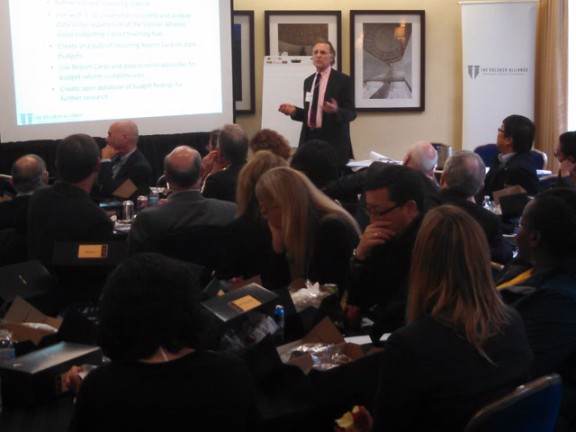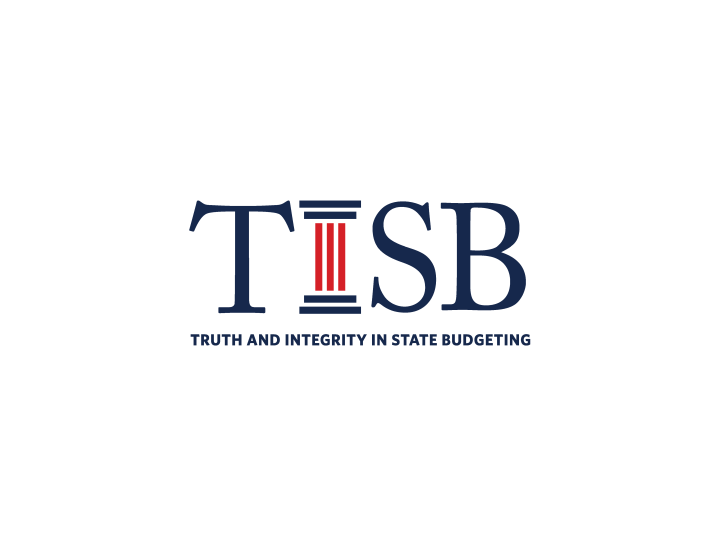Alliance Calls on Universities to Help Expand Truth in State Budgeting Research

The Volcker Alliance laid out plans to expand the Truth and Integrity in Government Finance project in partnership with universities to a group of more than 60 public finance professors and graduate students at a luncheon hosted by the Alliance during the annual meeting of the Association for Budgeting and Financial Management this month in Washington, D.C.
Bill Glasgall, Alliance state and local programs director, and Matt Fabian, partner at the Alliance’s budget data consultant, Municipal Market Analytics Inc., explained to the guests, from public administration and public policy programs across the U.S., why working with universities will be key to the growth of the Truth and Integrity project from the initial 3 states – California, New Jersey, and Virginia – to all 50.
“Locally based public finance professors are best situated to gather data about their own regions,” Glasgall told the ABFM audience. In addition, scrutiny of state budget practices by academics will provide graduate students with opportunities for further research, including capstone projects, he said, helping further the Alliance’s goal of strengthening public administration education. “This project definitely provides good opportunity for students who are interested in the field of public finance and budgeting,” David Guo, associate professor of public administration at Florida International University, commented by e-mail after the lunch meeting.
Truth and Integrity in State Budgeting: Lessons from Three States built on the findings of the State Budget Crisis Task Force, chaired by Alliance founder Paul A. Volcker and Richard Ravitch, an alliance director and former New York State lieutenant governor. The Alliance’s study, released in June, garnered media coverage by the New York Times, Wall Street Journal, Financial Times, Bloomberg, Reuters, and CNN. The Center for Budget and Policy Priorities (CBPP) and American Legislative Exchange Council (ALEC) both endorsed the Alliance’s preliminary report card and recommendations. Among the Alliance’s recommendations are improved budget transparency, including whether and how one-time sources are used to plug general fund deficits, as well as better revenue forecasting, rainy day fund procedures, and an end to borrowing to cover budget gaps. The report has also been assigned as course reading material at Rutgers University’s Bloustein School of Planning and Public Policy and the Trachtenberg School of Public Policy and Public Administration at George Washington University.
The Washington, D.C. luncheon included a discussion of ways the Truth and Integrity project’s initial screening criteria and analysis might be augmented, including adding measures for structural general fund deficits and surpluses, tax abatements, and credits for businesses and revenue volatility; the shifting of costs from state general funds to counties and municipalities; the vulnerability of states to federal spending decisions; and commitments to use Generally Accepted Accounting Principles for budgets.
The Alliance plans to release a request for proposals, officially soliciting the involvement of interested universities in its 50-state study, before the end of the year.

